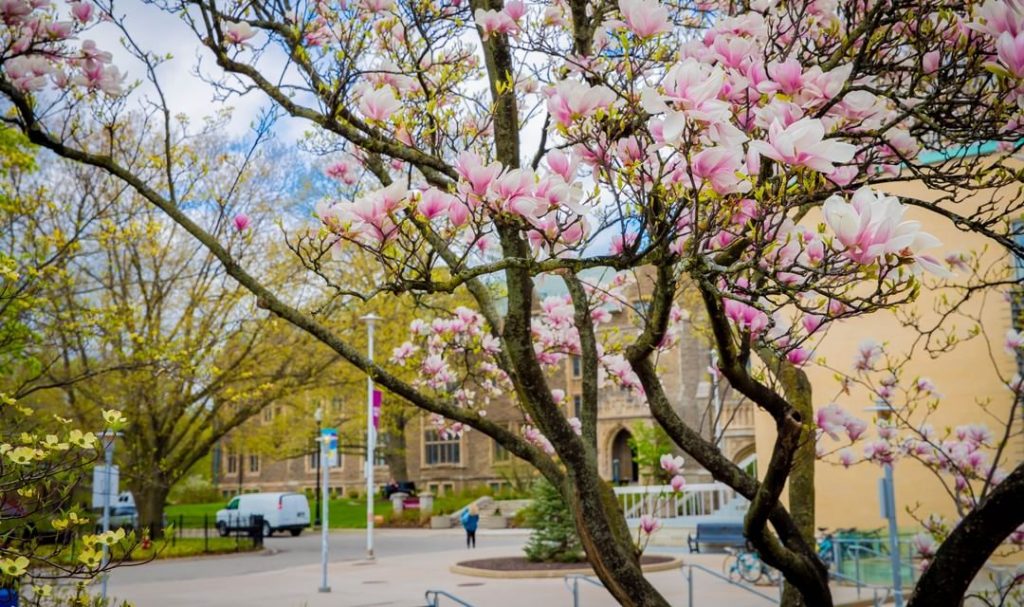The trees are out to get you this allergy season

A late freeze delayed pollination for some trees, so now a lot of trees are pollinating at the same time, instead of the usual staggered start to allergy season.
BY Sonia Verma
May 16, 2018
Goodbye, winter. Hello spring. Hello sunshine, blossoms, birdsong, … pollen, itchy eyes, runny nose …
If you suffer from seasonal allergies, spring is a mixed blessing. And this year, thanks to a late-season freeze, trees that usually bloom in early spring are off to a late start. Now they’re pollinating at the same time as later bloomers, resulting in a high pollen season for a more trees than usual.
“Many people don’t know that allergies are more than a nuisance,” says Dr. Susan Waserman, an allergist and immunologist in the Faculty of Health Sciences. “Allergies can cause severe sleep deprivation, affecting your productivity, performance, mood and relationships.”
So take allergies seriously, she says. “Don’t suffer in silence.”
Here’s a bit more information from Dr. Waserman on seasonal allergies:
Q: When does tree pollen season end?
Probably the first or second week of June. But then it’s grass pollen season. And at the end of summer or start of fall, ragweed.
Q: Is there a way to know what kind of allergy season lies ahead?
Every year is sort of unique, and no, there is no way to know for sure. It depends on the weather, humidity, pollution at the time, as well as last year’s climate. The only way to know what to expect is to monitor the pollen counts.
Q: What can allergy sufferers do?
If you know you have allergies, keep your windows closed and run the air conditioner.
Keep an eye on pollen counts.
And take antihistamines — either over-the-counter medicine or see a physician and get a prescription. Consider nasal steroids.
If your physician isn’t able to help you with prescription antihistamines, ask them to refer you to an allergist. You could try allergy shots, or special therapy with desensitization tablets.
Q: Can our bodies develop a resistance to certain allergy drugs, so they don’t work as well?
Patients sometimes think that’s the case, and they pull switches. But in general, no, that doesn’t happen. Allergy medications work quickly and their efficacy doesn’t usually change with time, if you take them appropriately.
Q: Are people getting more allergies?
Sometimes, if you’re around plants you’ve never experienced before, your body might react to them.
And it’s possible climate change is playing a role in the prevalence of allergies — the weather and seasons are changing and new plants are able to grow. There’s more pollution, too.
Q: Any advice?
Allergies can last a long time and have a seriously adverse affect your life. Don’t be miserable. Treat them appropriately and keep an open mind. If you’re not getting better, see a physician. See an allergist.


